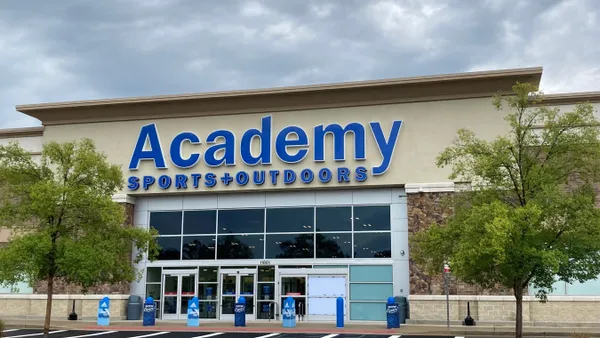UPDATE: Feb. 26, 2020: The National Labor Relations Board (NLRB) published a final rule updating its joint-employer standard Wednesday. The rule stipulates that two employers are only considered joint employers if they "‘share or codetermine those matters governing the essential terms and conditions of employment." Essential terms are "exclusively defined," as wages, benefits, hours of work, hiring, discharge, discipline, supervision and direction, said the NLRB.
The updated rule effectively overturns the joint-employer standard established by the 2015 decision in Browning-Ferris Industries, which led to years of ambiguity and confusion for warehouses and supply chain players who lean on contract labor to up capacity during peak times. Warehouse managers directing contractors' tasks cannot be considered the contractors' employers under the new rule.
Dive Brief:
- The National Labor Relations Board (NLRB) proposed a new rule Friday regarding the joint-employer standard that determines which parties may be liable for National Labor Relations Act (NLRA) violations in cases involving more than one potential employer, such as placement agencies, franchise scenarios and independent contractor relationships.
- If the rule goes into effect, only employers who exercise actual direct and immediate control over the terms and conditions of an employee's employment will be legally considered the employer in such a situation.
- The NLRB will accept comments on the proposed rule change for 60 days beginning September 14.
Dive Insight:
Right now, staffing agencies serving the supply chain are busy placing thousands of seasonal workers in delivery vans and at fulfillment centers. Without this rule change, NLRA liability is murky and has been for roughly three years, multiple lawyers explained to Supply Chain Dive.
The joint-employer standard, and the legal machinations around it, has been a source of anxiety and confusion for employers of contract employees since 2015 when the NLRB, under the Obama administration, handed down a ruling in the Browning-Ferris case stating any company maintaining indirect or even reserved control to hire, fire, discipline or supervise an employee could be considered a joint employer.
"In Browning-Ferris the NLRB changed decades of precedent on what made two or more entities a joint employer for the purposes of federal labor law. It said you no longer have to have direct, and immediate control over working conditions," said Marlen Cortez Morris, partner at Barnes & Thornburg, who works frequently with franchisors. "That is one of the big problems with the Browning-Ferris standard — it left many wondering what would constitute reserved, indirect or limited control over the worker’s working conditions? It left businesses vulnerable to liability for workers that aren't theirs," she added.
“The broad and vague joint employer standard put in place during the previous administration made it harder to do business and discouraged entrepreneurship. When one business can be held liable for the actions of another independent company, the result is limitless liability and weaker job creation," said the National Retail Federation in a statement emailed to Supply Chain Dive.
Holding parties with "indirect" control over employees to the standard of joint employer meant both potential employers in these scenarios (the franchisor and the franchisee or the staffing agency and the hiring business) could, for example, be responsible for union negotiations and liability for employee safety. Just reserving the right to terminate workers, even if the business is not directing their daily work, was enough to meet the standard.
"Employers have had to be more careful about the control they have exercised and even the control they have not exercised because Browning-Ferris said that even unexercised but reserved control may meet the joint-employer standard," said Mark Trapp, partner at Conn Maciel Carey LLP, who works with employers in manufacturing, hospitality and warehouses.
The proposal from the NLRB doesn't mean the confusion is immediately resolved. First, the rule change must go through the 60-day comment period. Plus, the joint employment question remains unresolved in other areas, including the Fair Labor Standards Act.
A bill to change both relevant laws passed the House of Representatives in 2017 with bipartisan support, but has yet to be taken up by the Senate.
"For now, employers are still stuck in this sort of limbo but they can see which way the wind is blowing and hopefully it's at their back," said Trapp.














